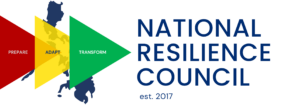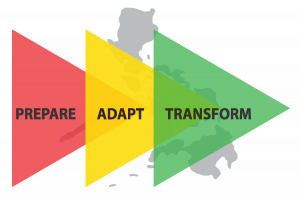Source: The Philippine Star – Filipino Worldview | Author: Ambassador Roberto R. Romulo | Date: March 13, 2020
The World Health Organization yesterday declared the COVID-19 a pandemic, meaning that its spread is global and there is widespread local transmission. It signals that health authorities must now change focus from containment to mitigation. Much is unknown about the COVID-19, but it seems to have the capability to spread faster and be more virulent than the flu. The fatality rate of COVID-19 is currently at 3.4 percent, but as more tests are conducted, that rate will go down to what some say is around one percent. One death, of course, is one too many.
A kit, a kit, my kingdom for a (testing) kit!
Although China seems to have turned the corner on the disease, the rest of the world are just beginning to feel its severity. The Philippines has proven to be ill-prepared for this new disease. We are particularly vulnerable because we have a large number of fellow citizens working in places where risk to exposure is high.
The crucial element in containment is diagnostic testing especially considering that people infected with the virus may be infectious even without exhibiting any symptoms. DOH Secretary Duque has said that funding is not a problem, but rather the availability of testing kits. True, but like in the US this was compounded by delaying the onset of mass testing and by limiting it to those who have exhibited symptoms.
The other issue is that diagnostic testing is a two-step process requiring field testing results to be sent to accredited laboratories for confirmation. Thus, it takes anywhere from 24 to 48 hours turnaround for the results — crucial time lost. Previously, samples had to be sent to a laboratory in Melbourne. I understand that RITM now has that capability, but that means far away regions will have longer turnaround counting the transport time. Secretary Duque said four more regional centers would be opened soon. Those labs require sophisticated devices to provide definitive positive or negative results. I hope they have them or are allocated funds to acquire them. As more tests are conducted, the number of those identified as infected will rise dramatically. As in the US, the question being asked here is if the delay and paucity in testing has enabled the disease to gain a toehold in the country.
Although now is not the time for finger pointing, but rather for a concerted effort by all of society to mitigate its impact on the country, it would be instructive to learn from the experience of others in dealing with infectious disease — which seem to be the “new normal” — now and for the long term.
Taiwan model
Given its proximity to China and the magnitude of the flow of people and goods across the Taiwan Strait, Taiwan was expected to be hit hard by the initial outbreak. But contrary to expectations, it has been able to contain the spread of the disease to manageable levels in contrast to others in the region, notably Japan, South Korea, Hongkong and Singapore.
Firstly, Taiwan has a specialized agency tasked with infectious disease prevention and control. The Center for Disease Control was established in 1999 and is responsible for formulating disease prevention and control policies, conducting research on pathogens, and implementing rapid response measures to emerging infectious diseases. Taiwan was, therefore, able to take pre-emptive measures — utilizing digital technology like Big Data and AI — as the disease was developing in Wuhan.
The closest equivalent we have is the Epidemiology Bureau in the DOH which has inadequate resources and limited mandate. Rep. Joey Salceda recently introduced a bill that would create a Philippine equivalent agency.
Our handling of the current crisis has shown the importance of having a specialized agency with the resources and authority to tackle infectious diseases on a sustained basis.
Secondly, Taiwan had in place the mechanism to coordinate all relevant government agencies to rapidly respond to such outbreak. The National Health Command Center (NHCC) is part of a disaster management center and acts as the operational command point for central, regional and local authorities. Under the NHCC, Taiwan’s CDC activated the Central Epidemic Command Center (CECC) to coordinate efforts by various ministries including transportation, economic affairs, labor, education and the Environmental Protection Agency to counteract emerging public health crisis. In the Philippines, I am surprised that the Office of Civil Defense is not at the center of our government’s effort to deal with what may turn out to be a public health disaster.
Although not as dramatic as an earthquake, a volcanic eruption or a super typhoon but just as deadly, this pandemic should be treated the same way we respond to disasters. In past situations, presidential leadership was crucial in delivering an effective response. All of us should, therefore, take this seriously – starting from the top!
To support government efforts on mitigating the impact of the disease, the National Resilience Council is scheduling a roundtable on COVID-19 to increase awareness of the status of its spread and mitigation efforts at national and local levels in the Philippines. The roundtable will respond to a growing number of questions regarding the policies and their implementation with respect of early detection, containment, mitigation, and their implications on socio-economic stability and security; highlight potential interventions and solutions based on leading global practice; identify lessons being learned to inform future actions to address similar hazards; and emphasize the need for crisis management and leadership, and organizational capacity for national resilience. Key government officials and local and foreign experts will be invited to participate.
Postponement of the Roundtable on digital agriculture
The APEC Business Advisory Council (ABAC) has made the sensible decision to postpone its meeting in Manila out of concern for the participants given that the disease is not yet under control and in fact, now declared as a pandemic. Unfortunately, that means the CPR Foundation co-sponsored Roundtable on digital agriculture, which was part of a series of events during the meeting, will have to be postponed as well. We will announce the new date once it is confirmed. The event and the subject have drawn considerable support, most specially from DA Secretary William Dar.
![]()


